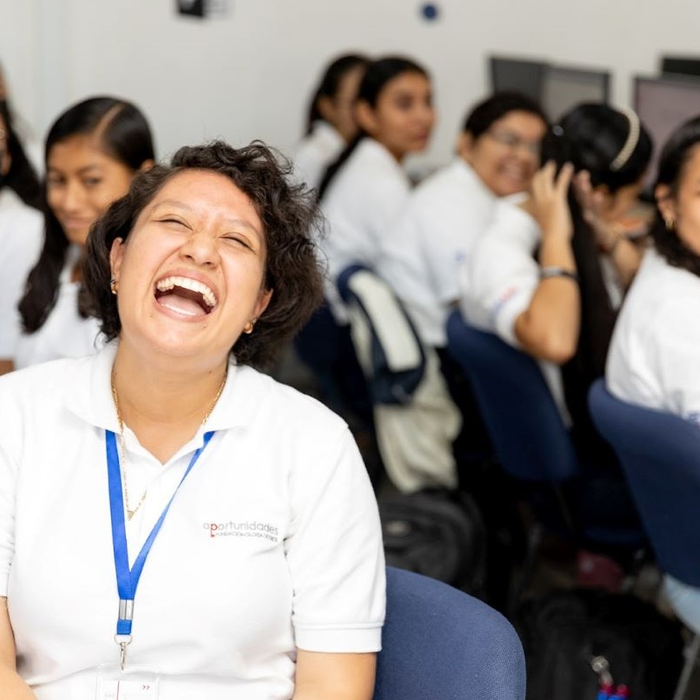Scholarship Program Draws on Cross-Sector Funding, Helps Address Indonesia’s Development Challenges
Higher Education Scholarships in Action Blog Series
 Photo Credit: Photo courtesy of Aditya Lapu Kalua
Photo Credit: Photo courtesy of Aditya Lapu Kalua
In connection with the launch of the USAID Higher Education Scholarships Toolkit and to help demonstrate the value and importance of USAID's higher education scholarships programs, the USAID Leading Through Learning Global Platform (Leading Through Learning) interviewed USAID staff from two Missions (i.e., USAID/Egypt and USAID/Indonesia) and the Bureau for Global Health (GH). These interviews captured their experiences on designing higher education scholarship programs and were edited into a webinar presentation to launch the USAID Higher Education Scholarships Toolkit.
PRESTASI
The Program to Extend Scholarships and Training to Achieve Sustainable Impacts (PRESTASI) provided scholarships and short-term training to Indonesians from 2011 to 2020. PRESTASI, which means “achievement” in Indonesian, provided degree and non-degree educational opportunities and leadership development for Indonesian students and young professionals from both public and private Indonesian institutions.
Funded over three phases, PRESTASI was intended to build skills, knowledge, and capacity across multiple sectors. The scholarship was funded by multiple USAID/Indonesia Technical Offices, including Human Capacity and Partnerships, Environment, Health, and Democracy Rights and Resilience. “When we designed the program, every technical office reviewed the statement of work and the limit of the type of activity,” says Hanif Saleh, a recently retired USAID/Indonesia Program Development Specialist. “When we recruit students, we always ask every technical office how many scholarships they would like to provide.”
USAID/Indonesia was able to build on the success of the USAID Human and Institutional Capacity Development (HICD) program and each phase of PRESTASI. One major lesson was to enhance its partnership with Government of Indonesian (GOI) officials. This led to processes for effectively recruiting candidates from specific technically focused Ministries and designing cost-sharing mechanisms with the government. “The co-funding mechanism is really helpful in reducing the risk,” says Saleh. “For example, if we are working with the Ministry of Justice and they have decided to support four students, they usually do the recruitment within the institutions before allowing them to apply for the PRESTASI scholarship program.” This led to more buy-in from within GOI Ministries and more fair and balanced representation.
PRESTASI used a variety of strategies to recruit a diverse pool of candidates, with an effort to both share information openly and to target specific groups, such as women, students in underserved regions, students with disabilities, and diverse candidates within the GOI. At the core of these strategies was using networks—engaging and developing partnerships to reach specific communities and those outside major population centers.
“We always encourage women to apply, and we also announce that women will have additional scores when reviewing the document for the first time,” says Saleh. “We are happy the participation rate is almost equal between men and women.” Alums with diverse backgrounds were invited to participate in recruitment events when possible. Women were especially active in outreach activities, serving as examples to motivate and encourage others to apply. Preparing scholarship recipients for success is a critical part of the process. “We provided six months pre-academic training in-country to improve their English language. PRESTASI is the only scholarship program here in Indonesia that requires only a 450 TOEFL [i.e., Test of English Language as a Foreign Language] score,” explains Saleh. “This is because we see a lot of people with a fairly strong technical capacity but they are light in English. So we decided to have less English language requirements and then provided the English preparation course here.” The time it takes from developing a program description to beginning recruitment through to the students leaving for the United States is about a year.
The experience does not end with graduation. PRESTASI alumni contribute to a strong and vibrant alumni association known as ALPHA-I. USAID/Indonesia’s support helped start the organization, and now ALPHA-I includes alumni from across 13 scholarship programs, with ten chapters in Indonesia. It has its own secretariat office in Jakarta and engages in various activities, including research, community empowerment, health programming, training, and media campaigns across issues related to fields of study and current work of scholarship programming alumni.
Through PRESTASI, USAID supported 357 Indonesians with scholarships in Indonesia and the United States, and another 1,280 Indonesians accessed short-term training programs in multiple fields. As Saleh says, “All scholars returned to Indonesia and back to their institutions,” helping to solve Indonesia’s development challenges.
Learn More:
Related Blog Posts

Embracing Effective Learner-Centered Approaches in Higher Education

One Year in Higher Education, Five Activities to Keep Learning From
